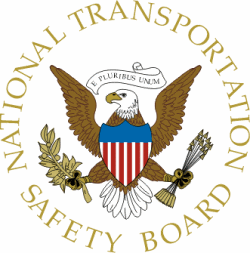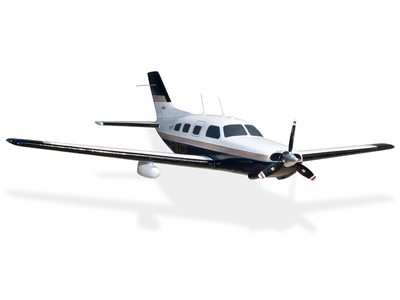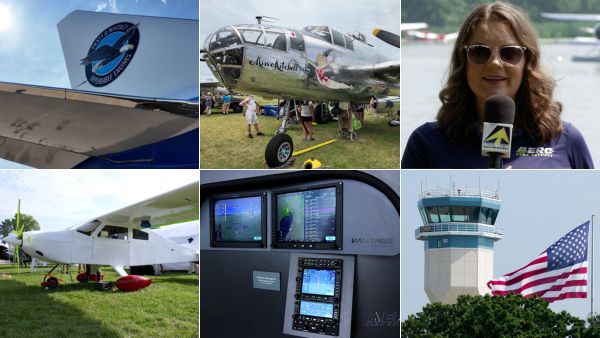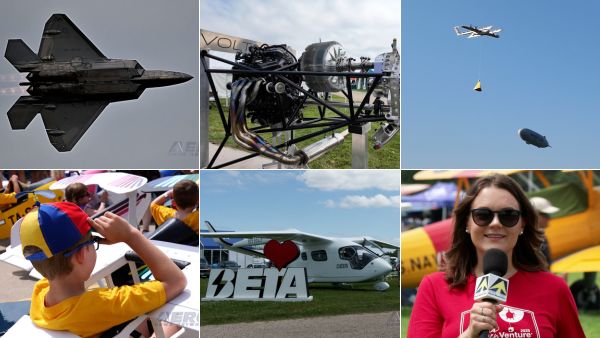Thu, Oct 20, 2011
Airplane Went Into The Water On Final Approach, Resulting In
Three Fatalities
Flying in instrument conditions at night over water will always
be challenging. In an accident which occurred over Thanksgiving
weekend last year, one such flight ended with the airplane in the
water in a bayou about a mile shore of the runway at
Destin, FL, and three people fatally injured. The NTSB on
Tuesday issued its probable cause report for the accident, saying
the pilot made improper decisions on approach which led to the
accident.

According to the probable cause report, the instrument-rated
pilot was executing a night instrument approach when the airplane
impacted the water. The published approach minimums for the area
navigation/global positioning system approach were 460-foot ceiling
and one-mile visibility. Recorded air traffic control voice and
radar data indicated that prior to the approach the pilot had
turned to an approximately 180-degree heading and appeared to be
heading in the direction of another airport. The controller
reassigned the pilot a heading in order to intercept the final
approach.
The airplane, a Piper PA-46-350P (Malibu Mirage), was located in
the water approximately 5,000 feet from the runway threshold. A
postaccident examination of the airplane revealed that the left
main landing gear was in the retracted position and the right main
and nose landing gear were in the extended position. Examination of
the left main landing gear actuator revealed no mechanical
anomalies. The pilot had likely just commanded the landing gear to
the down position and the landing gear was in transit. It is
further possible that, as the gear was in transit, the airplane
impacted the water in a left-wing and nose-down attitude and the
left gear was forced to a gear-up position.

The pilot, age 47, held a private pilot certificate with a
rating for airplane single-engine land and instrument airplane. His
most recent application for an FAA third-class medical certificate
was issued on February 18, 2009. The pilot's flight time log book
was recovered and the last entry was dated November 20, 2010. At
that time, his total flight experience was 407.5 hours; of which,
33.7 hours were in the same make and model as the accident
airplane. According to documentation, the pilot had completed a
flight review and instrument competency review on November 6,
2010.
The board said the probable cause for the accident was
"Controlled flight into water due to the pilot's improper descent
below the published minimum descent altitude."
More News
Also: Centauri Aircraft Valkyrie, Meet the Admin, Night Airshow, Pelton Intv'w When we laid eyes on this critter, we fell in love… and then we learned the amazing story of t>[...]
Check out Blackshape in Oshkosh Display #190 Situated in the Apulian Aerospace district in Monopoli, Italy, Blackshape embodies the epitome of Italian craftsmanship, style, and qua>[...]
A Powerhouse In Aviation Safety Technology, Visit Alpha Systems AOA at Osh Display#3124-3125 Alpha systems AOA has been developing and integrating Angle of Attack systems for the l>[...]
High-Flying Models By PilotMall.com: Honoring Aviation's Legacy We are dedicated to preserving and celebrating our rich aviation heritage through stunning mahogany wood scale repli>[...]
CiES Has Pioneered Life Saving Technology Of Use To Pilots All Over The World... Booth 3119 CiES: CiES Inc. is the global leader in digital fuel quantity sensors for general aviati>[...]
 OSH25 Day Four Redux: Spirit SE-1!, H55 eFlyer, King Schools
OSH25 Day Four Redux: Spirit SE-1!, H55 eFlyer, King Schools ANN Thanks Our Speedy Sponsor... Blackshape!!!
ANN Thanks Our Speedy Sponsor... Blackshape!!! Alpha Systems AOA Guides ANN Oshkosh Coverage
Alpha Systems AOA Guides ANN Oshkosh Coverage Pilot Mall Intro's High Flying Models To ANN Sponsor Lineup
Pilot Mall Intro's High Flying Models To ANN Sponsor Lineup CiES Fuels ANN's Oshkosh 2025 Special Event Coverage
CiES Fuels ANN's Oshkosh 2025 Special Event Coverage




